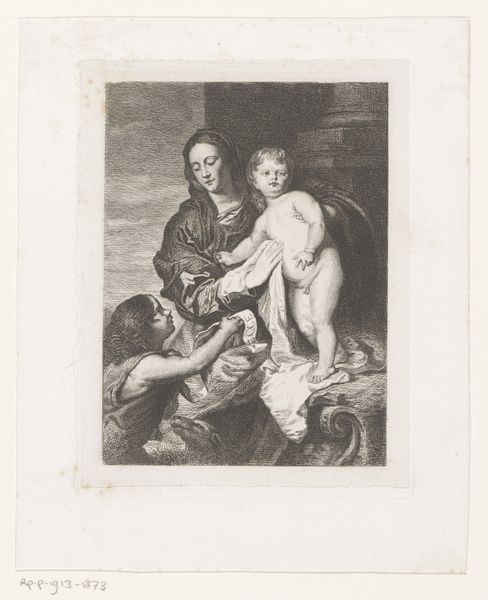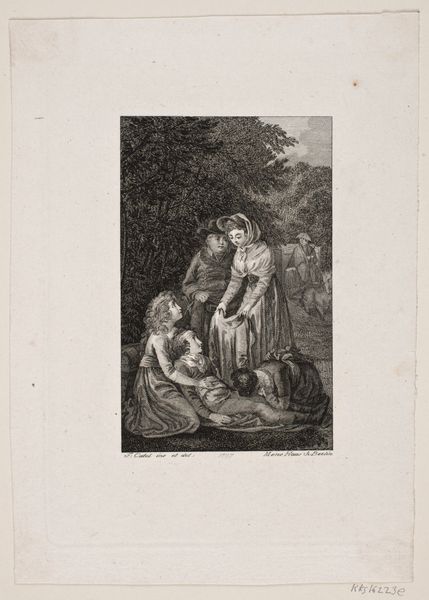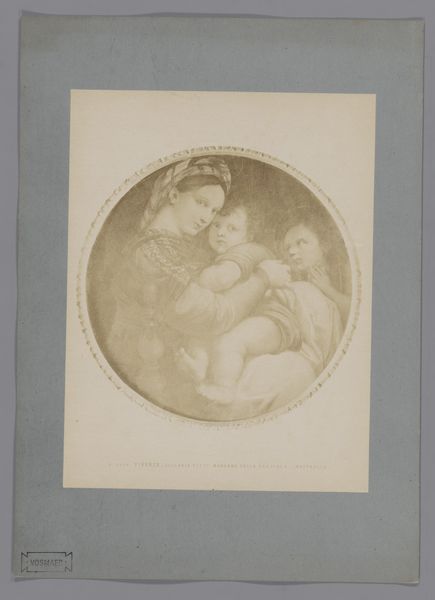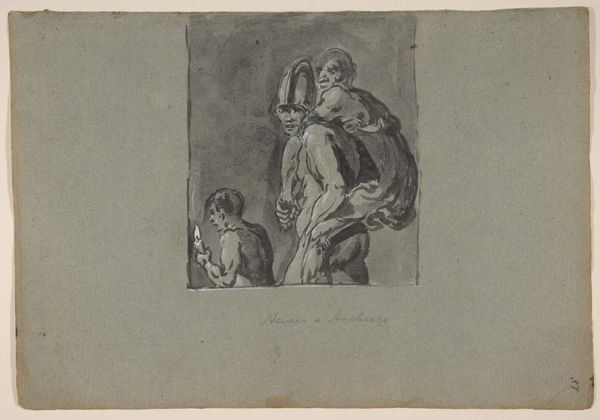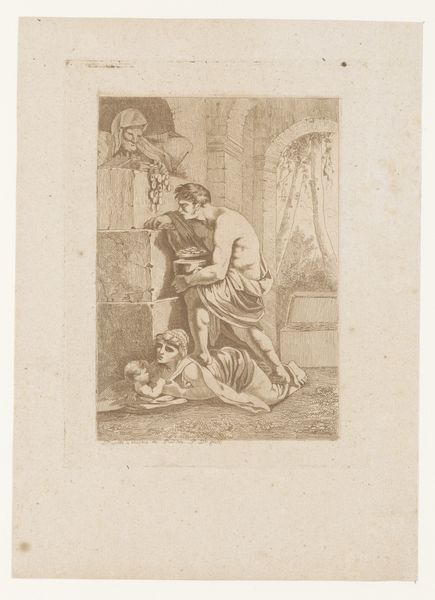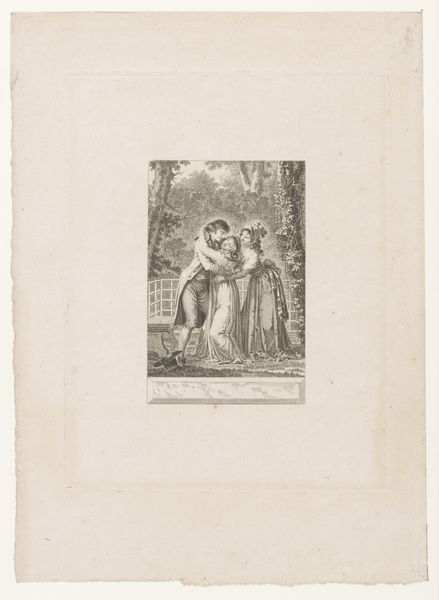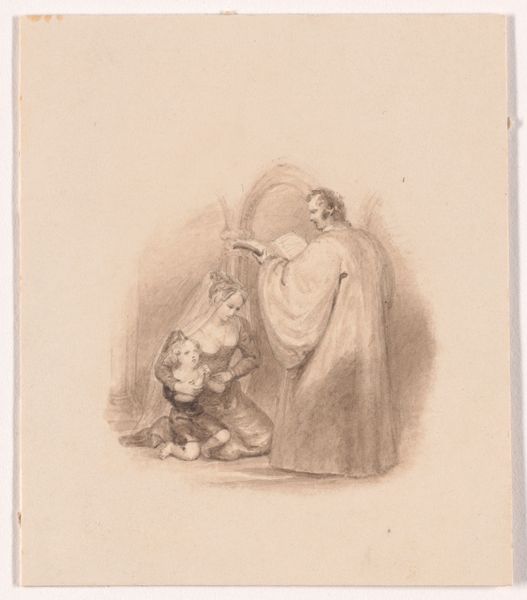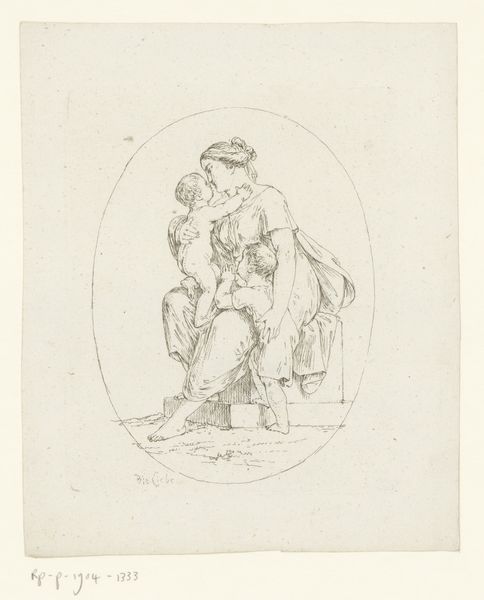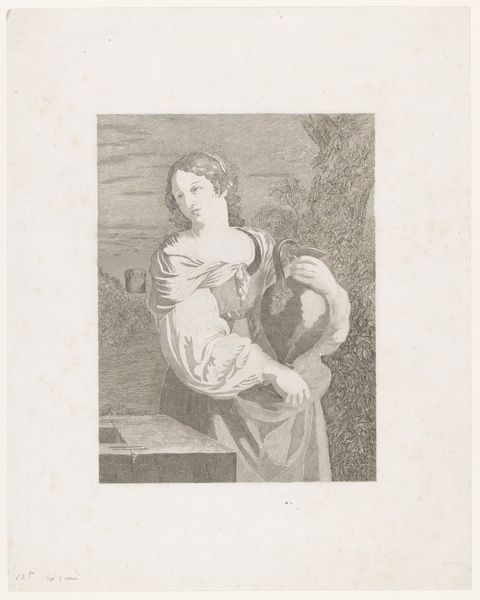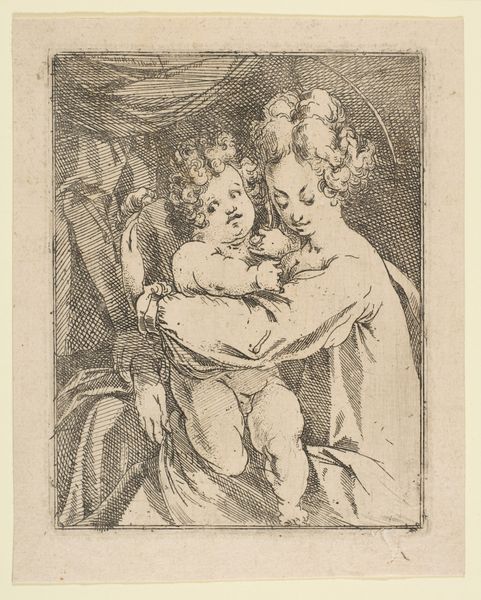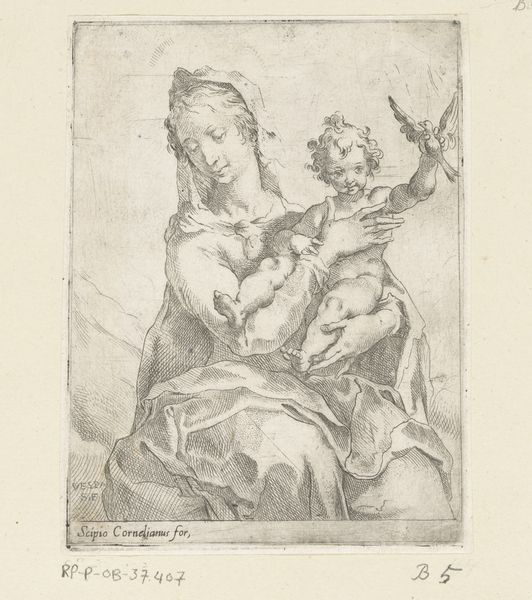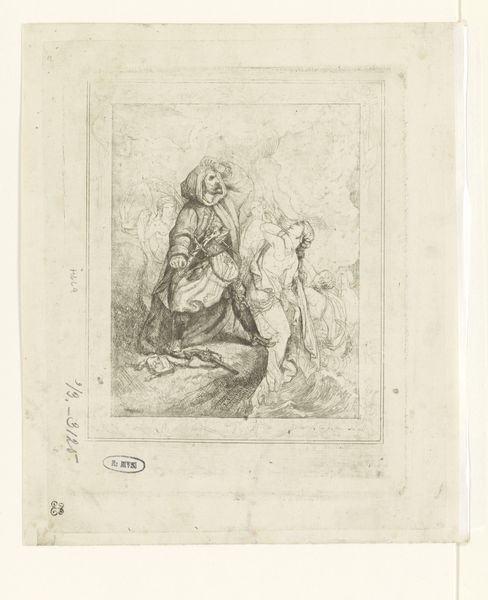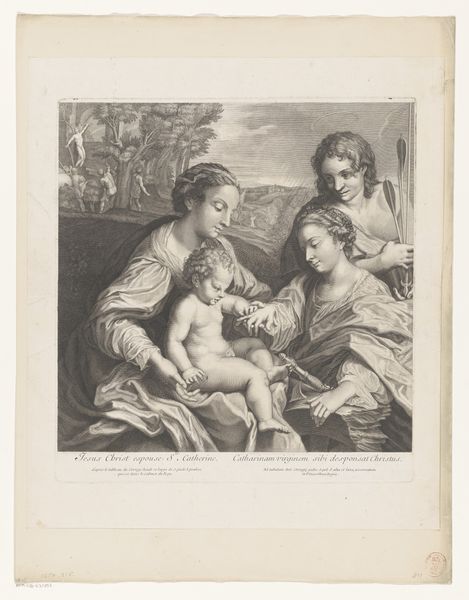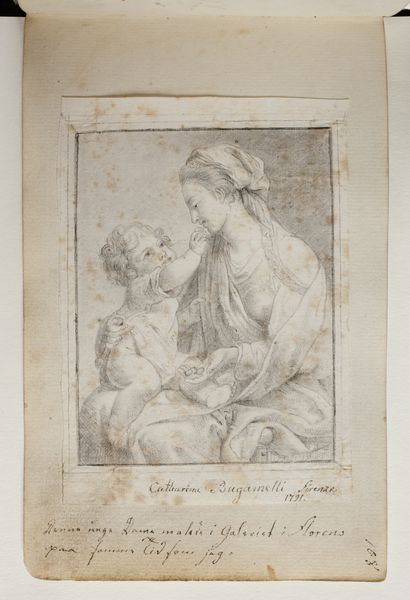
drawing, print, etching, paper
#
portrait
#
pencil drawn
#
drawing
# print
#
etching
#
paper
#
pencil drawing
#
history-painting
#
academic-art
#
realism
Dimensions: Sheet: 15 5/8 × 11 5/8 in. (39.7 × 29.6 cm) Plate: 10 9/16 × 8 in. (26.8 × 20.3 cm)
Copyright: Public Domain
Marcellin Desboutin created this drypoint print, "Virgin and Child, after Murillo," sometime in the late 19th century. The image presents the archetypal figures of the Virgin Mary and infant Christ, a subject deeply embedded in Western art history and religious doctrine. Desboutin, a Frenchman, looked back to the work of the Spanish Baroque painter Bartolomé Murillo. During the 19th century, there was a growing public interest in making the art of the past more widely accessible, and printmaking played a key role in this. Museums began to form and expand, and the art market became more active. Artists like Desboutin found a ready audience for reproductive prints of famous paintings. To understand this work fully, one might consult exhibition catalogs, period reviews of Desboutin's prints, and other sources that can illuminate the print's place in the cultural landscape of its time. The meaning of this image lies not just in its visual qualities, but in its complex relationship to artistic tradition, religious belief, and the evolving institutions of the art world.
Comments
No comments
Be the first to comment and join the conversation on the ultimate creative platform.
